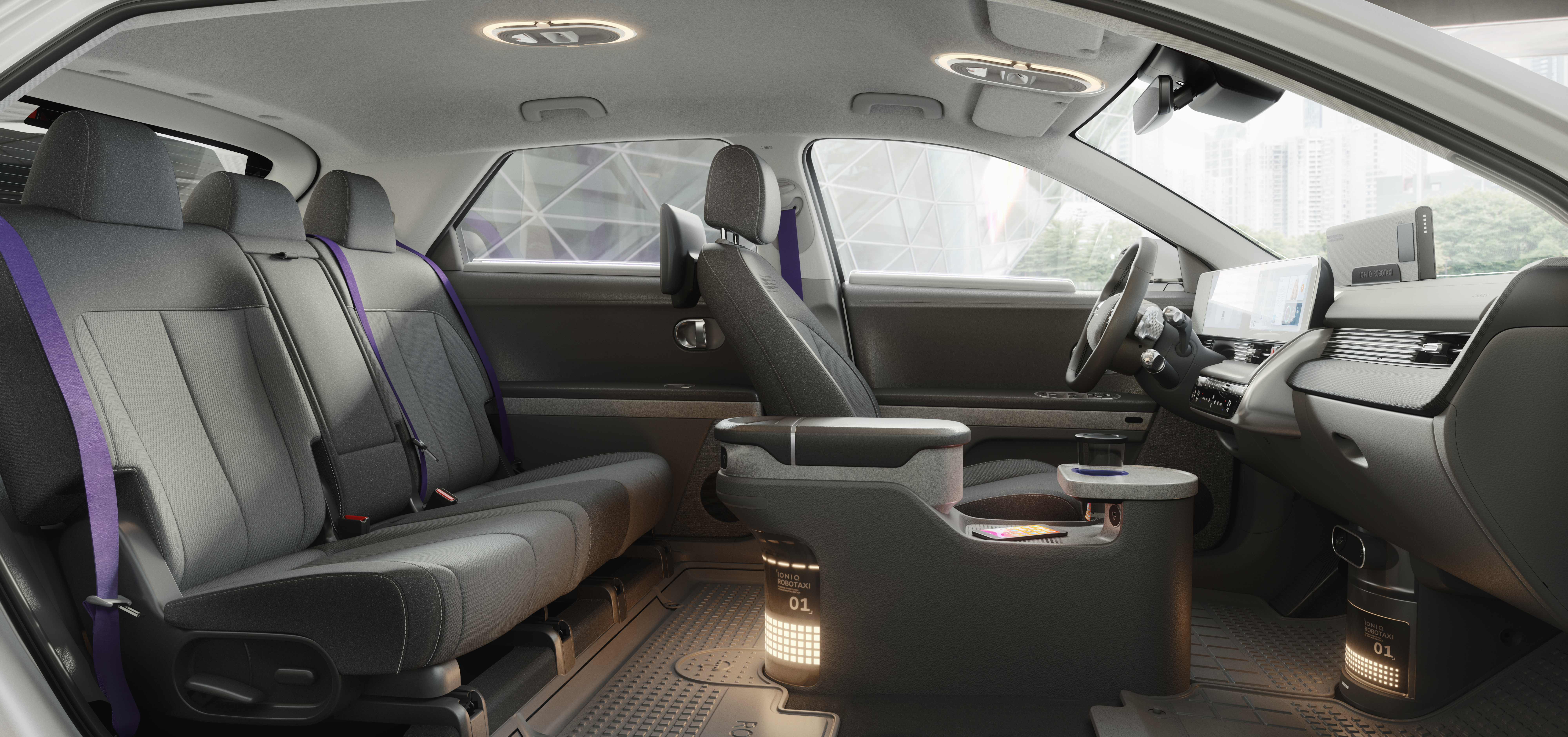Motional revealed Tuesday the first images of its planned robotaxi, a Hyundai all-electric Ioniq 5 SUV that will be the centerpiece of a driverless ride-hailing service the company wants customers to be able to access starting in 2023 through the Lyft app.
The purpose-built vehicle, which will be assembled by Hyundai, is integrated with Motional’s autonomous vehicle technology, including a suite of more than 30 sensors including lidar, radar and cameras that can be seen throughout the interior and exterior. That sensing system provides 360 degrees of vision, and the ability to see up to 300 meters away, according to Motional.
The company, which was born out of a $4 billion joint venture with Aptiv and Hyundai, intentionally showcases the numerous sensors, president and CEO Karl Iagnemma said in a recent interview.
“We see so many competitors bending over backwards to try to hide this sensor suite and conceal it in these big plastic casings,” Iagnemma told TechCrunch. “And the fact is, you can’t hide the sensors. They need to be where they need to be and they’re an important part of the car and a key part of the technology. So our strategy was to celebrate the sensors, and to adapt the design language of the vehicle and carry that through the design of the integrated sensor suite.”
Motional has not announced where it will launch its first driverless robotaxi service. It’s likely that it will be in one of the cities it currently is testing and validating its technology, a list that includes Boston, Las Vegas, Los Angeles and Pittsburgh.
The base of Motional’s robotaxi is the Hyundai Ioniq 5, an electric vehicle revealed in February with a consumer release date expected later this year. The consumer version will not be equipped with Motional’s autonomous vehicle technology. Unlike some AV developers, Motional didn’t chose a shuttle design or even a larger van for its first robotaxi.
Iagnemma said that the company’s research shows the vast majority of taxi or ride-hailing trips are for two or fewer passengers. The Ioniq 5 is the right size vehicle for Motional’s use case, he added.
The Hyundai Ioniq 5 is the first vehicle based off the automaker’s dedicated battery electric vehicle platform called the Electric Global Modular Platform (E-GMP). The vehicle — both the consumer and robotaxi version — is equipped with an 800-volt electrical system. This higher voltage system is able to supply the same amount of power as the more common 400-volt with less current. The 800-volt system, which debuted in the all-electric Porsche Taycan, is lighter, more efficient and allows the vehicle to charge at a faster rate.
That fast charging rate will be an important benefit for Motional’s robotaxi service.
The robotaxi version of the Ioniq 5 will be assembled by Hyundai, a noteworthy detail, Iagnemma said.
“This is vehicle that will come off the assembly line looking, as you see it in the pictures,” Iagnemma said. “This is not a scenario where we’ll take a base vehicle, move it to a different line, take the components off and then reintegrate or retrofit it.
Inside the robotaxi are displays to allow riders to interact with the vehicle during their ride, such as directing the robotaxi to make an extra stop, according to the company.
The robotaxi still has a steering wheel and other features found in traditional vehicles operated by a human driver. Riders will not be permitted to sit in the driver seat.


Comments
Post a Comment